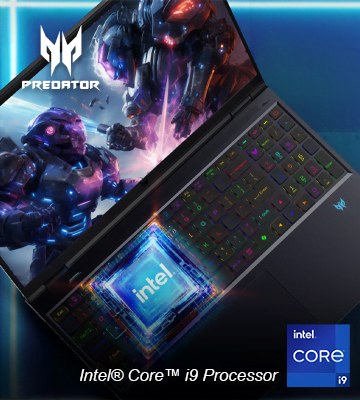Intel i7 vs Ryzen 7 Laptops: Which One Should You Choose in 2025?

Looking for high-performance laptops in Nepal? Whether you’re editing 4K video, compiling code, or gaming at high frame rates, both the Intel Core i7 and AMD Ryzen 7 are up to the challenge. However, they don’t perform identically. In this comparison, we examine benchmarks, thermals, and performance under pressure to help you select the processor that best suits your demanding workload.
Who Should Choose an Intel Core i7 Laptop in 2025?
The Intel Core i7 series, especially the 13th and 14th Gen H-series chips, offers serious horsepower. With up to 14 cores and higher boost speeds, i7 laptops are great for users who run demanding applications and need faster multitasking.
Best Suited For:
- Video Editors and designers: This is excellent for Adobe Premiere Pro, After Effects, or AutoCAD. Rendering is faster, and multitasking is smoother.
- Developers & Engineers: Whether you’re compiling in Visual Studio, managing VMs, or building in Docker, the i7 handles it with ease.
- Gamers & Streamers: It supports high-refresh-rate gaming at 1080p/1440p with GPUs like RTX 4060/4070. It is also good for live streaming with OBS.
- Data Analysts: Smooth performance in Excel with large datasets or in Power BI and Python-based tools.
- Remote Professionals: Can handle multiple monitors, VDI, and heavy Chrome multitasking with no slowdowns.
Who Should Choose an AMD Ryzen 7 Laptop in 2025?
Ryzen 7 laptop, processors like the 7840HS or 7735HS are built for creators, developers, and gamers who demand more. With 8 cores and 16 threads and support for high-efficiency RDNA 3 integrated graphics, Ryzen 7 laptops deliver workstation-grade speed in a compact form.
Ideal For:
- Content Creators: Handles 4K video editing, Photoshop batch processing, or DaVinci Resolve rendering like a champ.
- Gamers & Streamers: Plays modern AAA titles (e.g., Cyberpunk 2077, Elden Ring) when paired with a mid-range GPU and streams simultaneously via OBS or Streamlabs.
- Data Scientists & Engineers: Great for running models in Python, Jupyter Notebooks, or simulations in MATLAB or SolidWorks.
- Heavy Multitaskers: Easily switches between VMs, databases, browser windows, and creative apps.
- Remote Developers: Ideal for full-stack or mobile app devs who need a snappy, thread-rich system for compiling and testing code locally.
Performance Comparison Table
| Feature | Intel Core i7 | AMD Ryzen 7 |
| Cores/Threads | 12-16 Cores / 16-24 Threads | 8-12 Cores / 16-24 Threads |
| Clock Speed | 3.4 – 5.2 GHz | 3.4 – 5.0 GHz |
| Cache Memory | 18MB – 24MB | 20MB – 32MB |
| Power Efficiency | Better power efficiency | Higher power consumption |
| Gaming Performance | Excellent with a dedicated GPU | Stronger integrated graphics |
| Video Editing | Faster single-core processing | Better multi-core rendering |
| Heat Generation | Less heat due to efficiency | More heat under load |
| Battery Life | Longer battery life | Moderate battery performance |
Pros and Cons of Intel i7 Laptops
Pros of Intel i7 Laptops:
- Excellent Multitasking and Performance: Intel Core i7 processors excel at handling heavy workloads. With higher core counts and hyper-threading, they provide fast and efficient performance in demanding applications such as video editing, 3D modelling, and software development.
- Strong Single-Core Performance: i7 processors excel in tasks that require high single-core performance, including many professional applications and high-end gaming.
- Better GPU Integration for Gaming: Intel i7s are often paired with powerful dedicated GPUs, allowing them to handle AAA games and graphically intense applications with ease.
- Future-Proof: With its higher core count and more robust performance, an i7 processor is a better investment for users who want their laptop to handle future software and games with higher demands.
Cons of Intel i7 Laptops:
- Higher Price Point: Intel i7 laptops tend to be more expensive, which can be a barrier for users on a budget or those who don’t require top-tier performance.
- Increased Power Consumption: i7 processors consume more power than i5 or Ryzen 5 CPUs, which can result in lower battery life and more heat generation.
- Overkill for Casual Users: If you’re just browsing the web, working with documents, or streaming videos, the extra power of the i7 might not be necessary and could lead to wasted potential.
Pros and Cons of Ryzen 7 Laptops
Pros of Ryzen 7 Laptops:
- Exceptional Multi-Core Performance: The Ryzen 7 excels in applications that demand heavy multitasking and multi-threaded processing. It is ideal for content creators, software developers, and anyone working with resource-heavy applications.
- Better Integrated Graphics: With AMD’s RDNA 3 integrated graphics, Ryzen 7 processors outperform Intel in tasks that require integrated graphics, such as casual gaming or video editing without a dedicated graphics card.
- Great Value for Professional Users: For those working with demanding software like 3D rendering or scientific computing, Ryzen 7 provides strong value compared to similarly priced Intel i7 models.
- Future-Proof: The Ryzen 7’s robust multi-core performance makes it an excellent choice for users who want to keep their laptop for years without needing to upgrade due to performance bottlenecks.
Cons of Ryzen 7 Laptops:
- Higher Price Point: Ryzen 7 laptops are generally more expensive, making them less suitable for budget-conscious buyers who don’t require high-performance tasks.
- Higher Power Consumption: Similar to Intel’s i7 processors, Ryzen 7 processors require more power, which can impact battery life, especially in thinner laptops.
- Not Ideal for Single-Core-Heavy Tasks: While Ryzen 7 excels in multi-core performance, it may not match Intel i7’s performance in applications that rely heavily on single-core tasks, such as some gaming and older software.
Real-World Performance Benchmarks: Intel i7 vs Ryzen 7
Gaming Performance:
- Intel i7: In gaming scenarios, Intel i7 processors offer slightly better FPS when paired with dedicated GPUs. The i7’s strong single-core performance provides an edge in high-demand games, resulting in smoother and more stable frame rates.
- Ryzen 7: Ryzen 7 excels in integrated graphics performance, offering higher FPS compared to Intel i7 when a dedicated GPU is not used. However, once a dedicated GPU is introduced, the performance differences between the two processors become minimal.
Content Creation:
- Intel i7: The Intel i7 shines in single-threaded applications, making it faster in tasks like compiling code, 3D modelling, and gaming. It’s an excellent choice for professionals who rely on software optimized for high single-core performance, such as certain design tools or simulation software.
- Ryzen 7: Ryzen 7, on the other hand, offers superior multi-core performance, which is especially beneficial in content creation tasks like video editing, rendering, and 3D modelling. It provides faster rendering times and more efficient multitasking for professionals working with creative applications.
Battery Life:
- Intel i7: Laptops with Intel i7 processors typically last between 6-10 hours, depending on the workload. While i7 models offer excellent performance, their higher power consumption can reduce battery life, especially during demanding tasks.
- Ryzen 7: Ryzen 7 laptops typically offer 4-8 hours of battery life, which tends to be shorter than that of Intel i7 models. Ryzen 7’s higher power consumption and stronger performance can lead to quicker battery drain, especially when running intensive applications.
Example Intel i7 and Ryzen 7 Laptops
If you’re considering an Intel i7 laptop, check out:
For Ryzen 7 laptops, consider:
Conclusion
Both Intel i7 and Ryzen 7 processors in laptops are designed for demanding users, but the choice depends on your workload. If single-core performance, power efficiency, and the best gaming experience with a dedicated GPU are your priorities, an Intel i7 laptop will deliver the performance you need. On the other hand, if you’re focused on multi-core tasks like video editing and 3D modelling or need stronger integrated graphics, a Ryzen 7 laptop offers an excellent combination of performance and affordability. Consider your specific needs and budget before choosing the right model.



